第40章 OSTIG IN SKY(5)
Of tenants there are different orders,as they have greater or less stock.Land is sometimes leased to a small fellowship,who live in a cluster of huts,called a Tenants Town,and are bound jointly and separately for the payment of their rent.These,I believe,employ in the care of their cattle,and the labour of tillage,a kind of tenants yet lower;who having a hut with grass for a certain number of cows and sheep,pay their rent by a stipulated quantity of labour.
The condition of domestick servants,or the price of occasional labour,I do not know with certainty.I was told that the maids have sheep,and are allowed to spin for their own clothing;perhaps they have no pecuniary wages,or none but in very wealthy families.
The state of life,which has hitherto been purely pastoral,begins now to be a little variegated with commerce;but novelties enter by degrees,and till one mode has fully prevailed over the other,no settled notion can be formed.
Such is the system of insular subordination,which,having little variety,cannot afford much delight in the view,nor long detain the mind in contemplation.The inhabitants were for a long time perhaps not unhappy;but their content was a muddy mixture of pride and ignorance,an indifference for pleasures which they did not know,a blind veneration for their chiefs,and a strong conviction of their own importance.
Their pride has been crushed by the heavy hand of a vindictive conqueror,whose seventies have been followed by laws,which,though they cannot be called cruel,have produced much discontent,because they operate upon the surface of life,and make every eye bear witness to subjection.To be compelled to a new dress has always been found painful.
Their Chiefs being now deprived of their jurisdiction,have already lost much of their influence;and as they gradually degenerate from patriarchal rulers to rapacious landlords,they will divest themselves of the little that remains.
That dignity which they derived from an opinion of their military importance,the law,which disarmed them,has abated.An old gentleman,delighting himself with the recollection of better days,related,that forty years ago,a Chieftain walked out attended by ten or twelve followers,with their arms rattling.That animating rabble has now ceased.The Chief has lost his formidable retinue;and the Highlander walks his heath unarmed and defenceless,with the peaceable submission of a French peasant or English cottager.
Their ignorance grows every day less,but their knowledge is yet of little other use than to shew them their wants.They are now in the period of education,and feel the uneasiness of discipline,without yet perceiving the benefit of instruction.
The last law,by which the Highlanders are deprived of their arms,has operated with efficacy beyond expectation.Of former statutes made with the same design,the execution had been feeble,and the effect inconsiderable.Concealment was undoubtedly practised,and perhaps often with connivance.There was tenderness,or partiality,on one side,and obstinacy on the other.But the law,which followed the victory of Culloden,found the whole nation dejected and intimidated;informations were given without danger,and without fear,and the arms were collected with such rigour,that every house was despoiled of its defence.
To disarm part of the Highlands,could give no reasonable occasion of complaint.Every government must be allowed the power of taking away the weapon that is lifted against it.But the loyal clans murmured,with some appearance of justice,that after having defended the King,they were forbidden for the future to defend themselves;and that the sword should be forfeited,which had been legally employed.Their case is undoubtedly hard,but in political regulations,good cannot be complete,it can only be predominant.
Whether by disarming a people thus broken into several tribes,and thus remote from the seat of power,more good than evil has been produced,may deserve inquiry.The supreme power in every community has the right of debarring every individual,and every subordinate society from self-defence,only because the supreme power is able to defend them;and therefore where the governor cannot act,he must trust the subject to act for himself.These Islands might be wasted with fire and sword before their sovereign would know their distress.A gang of robbers,such as has been lately found confederating themselves in the Highlands,might lay a wide region under contribution.The crew of a petty privateer might land on the largest and most wealthy of the Islands,and riot without control in cruelty and waste.It was observed by one of the Chiefs of Sky,that fifty armed men might,without resistance ravage the country.Laws that place the subjects in such a state,contravene the first principles of the compact of authority:they exact obedience,and yield no protection.
It affords a generous and manly pleasure to conceive a little nation gathering its fruits and tending its herds with fearless confidence,though it lies open on every side to invasion,where,in contempt of walls and trenches,every man sleeps securely with his sword beside him;where all on the first approach of hostility came together at the call to battle,as at a summons to a festal show;and committing their cattle to the care of those whom age or nature has disabled,engage the enemy with that competition for hazard and for glory,which operate in men that fight under the eye of those,whose dislike or kindness they have always considered as the greatest evil or the greatest good.
This was,in the beginning of the present century,the state of the Highlands.Every man was a soldier,who partook of national confidence,and interested himself in national honour.To lose this spirit,is to lose what no small advantage will compensate.